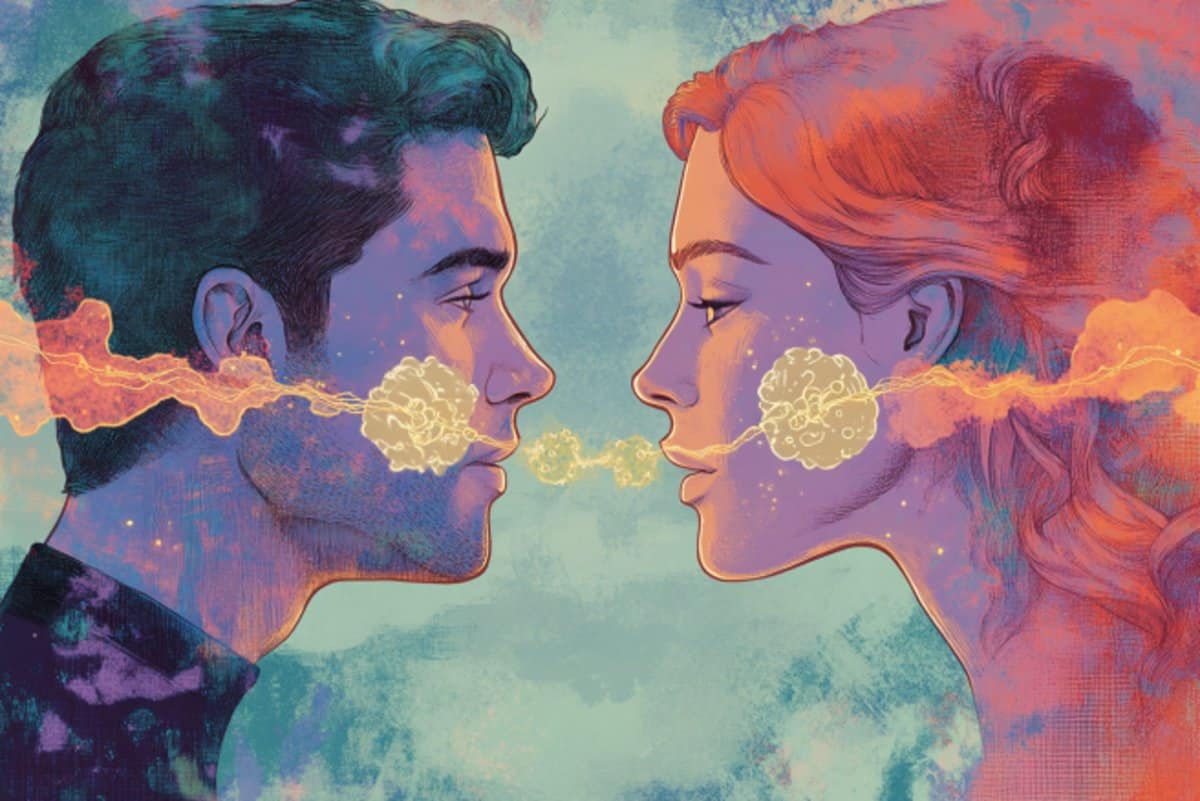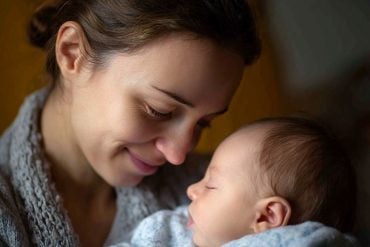Summary: A new study suggests that oral microbiota transmission between newlywed couples may influence the onset of depression and anxiety symptoms. Researchers observed that healthy spouses of partners with insomnia, depression, and anxiety developed similar mental health symptoms and microbiota profiles within six months of marriage.
The study found strong correlations between shared bacterial strains, altered cortisol levels, and increased depression and anxiety scores. While the findings are not yet causal, they highlight a possible microbial route for emotional contagion between intimate partners.
Key Facts:
- Microbial Convergence: Spouses’ oral microbiomes became more similar over time, particularly when one partner had depression and anxiety.
- Mood Correlation: Changes in microbiota composition correlated with increased salivary cortisol and worsening mental health in the healthy partner.
- Key Bacteria Identified: Higher levels of Clostridia, Veillonella, Bacillus, and Lachnospiraceae were linked to the depression-anxiety phenotype.
Source: Xia & He Publishing Inc
Oral microbiota dysbiosis and altered salivary cortisol levels have been linked to depression and anxiety.
Given that bacterial transmission can occur between spouses, this study aimed to investigate whether the transmission of oral microbiota between newlywed couples mediates symptoms of depression and anxiety.
Methods
Validated Persian versions of the Pittsburgh Sleep Quality Index, Beck Depression Inventory-II, and Beck Anxiety Inventory were administered to 1,740 couples who had been married for six months. The researchers compared 268 healthy control spouses with 268 affected cases in a cross-sectional study. Data were analyzed using appropriate statistical methods.
Results
After six months, healthy spouses married to an insomniac with the depression-anxiety (DA) phenotype scored significantly higher on the Pittsburgh Sleep Quality Index, Beck Depression Inventory-II, and Beck Anxiety Inventory compared to their baseline scores. This indicates that their sleep quality, depression, and anxiety scores became more similar to those of their affected spouses.
Additionally, the composition of their oral microbiota changed significantly, becoming increasingly similar to that of their spouses. Specifically, in couples where one partner had the DA phenotype, the oral microbiota of the healthy spouse mirrored that of the affected partner (p < 0.001).
These microbial changes correlated with alterations in salivary cortisol levels as well as depression and anxiety scores. Linear discriminant analysis revealed that the relative abundances of Clostridia, Veillonella, Bacillus, and Lachnospiraceae were significantly higher in insomniacs with the DA phenotype compared to healthy controls (p < 0.001).
Conclusions
The transmission of oral microbiota plays a partial role in mediating depression and anxiety among couples. Since this study is associational, further research is needed to establish whether this association is causal. If it is determined that this association is indeed causal, it could have significant implications for contemporary research.
We propose that, within the framework of diagnostic, predictive, preventive, and personalized medicine, the practical and theoretical implications of this study may enhance our understanding of various aspects of microbiota-host interactions.
About this microbiome and mental health research news
Author: Shelly Zhang
Source: Xia & He Publishing Inc
Contact: Shelly Zhang – Xia & He Publishing Inc
Image: The image is credited to Neuroscience News
Original Research: Open access.
“Oral Microbiota Transmission Partially Mediates Depression and Anxiety in Newlywed Couples” by Neil Daghnall et al. Exploratory Research and Hypothesis in Medicine








